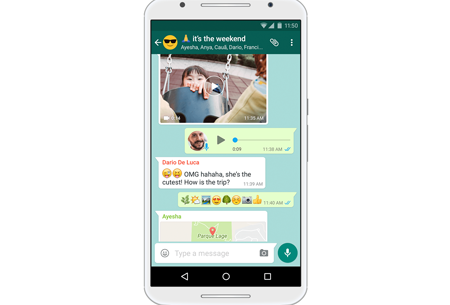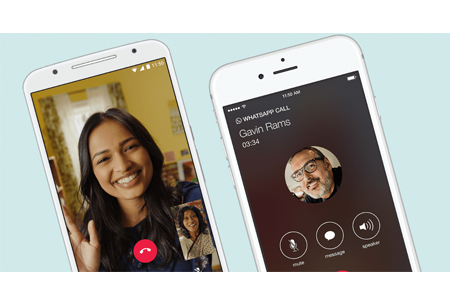WhatsApp provides fast, simple, secure text messaging, group messaging, voice calling and video calling for free and can be used to communicate with others all over the world.
Key Features
- Free Messaging to Anyone Worldwide | WhatsApp’s fast, simple, secure messaging and calling are available for free on phones all over the world.
- Group Messaging | Group chats allow students or work teams to share messages, photos, and videos with up to 256 people at once.
- Free Voice and Video Calls | Using free voice and free video calls, talk to friends and family for free, even if they’re in another country.
- Message Encryption | Messages and calls are secured with end-to-end encryption so only you and the person you’re communicating with can read or listen to them.
- File Sharing | WhatsApp allows you to send PDFs, documents, spreadsheets, slideshows and more, up to 100 MB.
Evidence of Effectiveness
In February 2018, WhatsApp had a user base of over one and a half billion spread around the globe, making it the most popular messaging application at the time.
World Education and other organizations have created user groups in WhatsApp to use group messaging to communicate with groups of students or all students in their classes. They can send assignments, documents, videos, related to what students are learning. Students can also message each other. World Education also uses WhatsApp groups to create closed groups between educators to share best practices and strategize on improving their instruction. In Laos, What’s App has been used by the Women’s Entrepreneurship Center to connect program alumni with current students. The platform enables new female business owners to get real-time feedback and connect with other women entrepreneurs throughout the country.
What They're Saying
Case Study
The United Farm Workers Union in California has used WhatsApp to communicate effectively with groups of immigrant workers about training and other issues. WhatsApp is widely used in Latin America so immigrant workers in California are often already familiar with it from using it to stay in touch with family members and friends.
Do you have a comment or a question?


